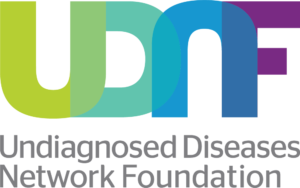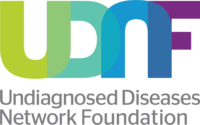05 Feb Undiagnosed Diseases Network Foundation (UDNF) Launches Patient Navigation Program

WASHINGTON, D.C. (Feb. 6, 2024) – The Undiagnosed Diseases Network Foundation (UDNF), a patient-led nonprofit organization committed to improving access to diagnosis, research, and care for people with undiagnosed diseases, today launched its Patient Navigation Program to connect undiagnosed or ultra-rare disease patients and their loved ones to services and care experts who can assist them in their journey through the healthcare system, which can often be complex and overwhelming. With 1 in 10 people (approximately 30 million) in the U.S. affected by at least one of the more than 10,000 known rare diseases, UDNF leaders believe that this new resource comes at a vital time.
“Seeking a diagnosis for undiagnosed or ultra-rare diseases, especially while managing chronic symptoms, can be incredibly confusing and time-consuming,” said Amy Gray, Chief Executive Officer of UDNF. “Our Patient Navigation Program aims to reduce much of this burden by connecting our services with the people and families who most need them. Not only does this information allow them to better navigate their disease path, it also gives them access to a much-needed, comprehensive support network.”
Live Online Event: UDNF will be introducing the Patient Navigation program to the undiagnosed and ultra-rare disease community during a live online event on Tuesday, February 6th at 12:00pm ET. Participants will learn about the various and diverse support that the program will address, including:
- Accessing social services for financial and healthcare support;
- Identifying viable research and diagnostic programs; and
- Fostering community among patients and families to facilitate social and emotional support.
“Before my son Mitchell passed away after living with an undiagnosed disease for five years, meaningful support was few and far between for my family,” said Michele Herndon, MSN, RN and Program Director of UDNF’s Patient Navigation Program. “Having gone through this experience myself, I made it a priority to deliver a program that recognizes the real challenges that patients and their loved ones face and provides obtainable resources to address them in a timely manner.”
The Patient Navigation Program will support patients both within the clinical sites of the Undiagnosed Diseases Network and the broader community beginning with Baylor College of Medicine and Washington University Medical Center in St. Louis. People currently living with or caring for those with an undiagnosed or ultra-rare disease nationwide are urged to apply on the UDNF website as the program continues to expand to new sites throughout the country: http://udnf.org/patient-navigation-program.
The Patient Navigation Program was made possible by a generous $2.5 million grant from the Chan Zuckerberg Initiative (CZI). The grant aligns with CZI’s health equity mission and UDNF’s prioritization of addressing disparities in the access to care.
“Living with an undiagnosed disease was not only confusing, but an incredibly isolating experience, with few outside outlets for emotional support,” said Mary Morlino, a UDNF patient navigator who was diagnosed with Sarcoidosis after 7 years of searching for answers. “I applaud the UDNF for making the Patient Navigation Program available so that more patients like myself can get the support they deserve, and I look forward to being able to share the knowledge I have gained from my own personal journey.”
About Undiagnosed Diseases Network Foundation
The Undiagnosed Diseases Network Foundation is a patient-led nonprofit organization founded in 2023 committed to improving access to diagnosis, research, and care for all with undiagnosed and ultra-rare diseases. The UDNF aims to foster collaboration among patients, clinicians, and scientists to enhance the quality of life of undiagnosed and ultra-rare disease patients and their families. For more information, please visit www.udnf.org.
About Undiagnosed and Ultra-rare Diseases
The search for a diagnosis for an undiagnosed or ultra-rare disease can be long and difficult. Patients may go from doctor to doctor without answers, and they may face treatment delays, lack of access to specialists, invasive and costly tests, emotional distress, and longing for community. There are more than 10,000 known rare diseases that affect about 1 in 10 people (or 30 million people) in the U.S. Led by undiagnosed and ultra-rare patients and their families, the UDNF offers hope for healthcare that embraces the unknown and pursues clinical and research solutions for patient wellbeing.
MEDIA CONTACT:
Hannah Petitti
571-481-8696
hannah.petitti@finnpartners.com



